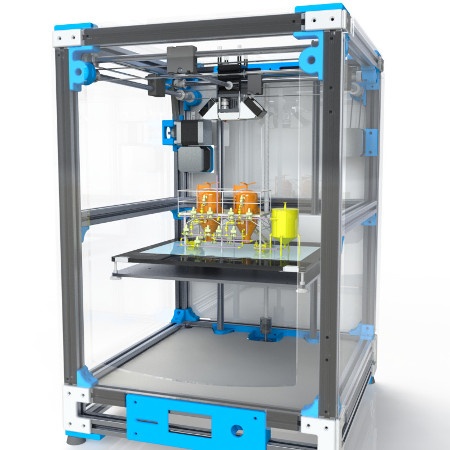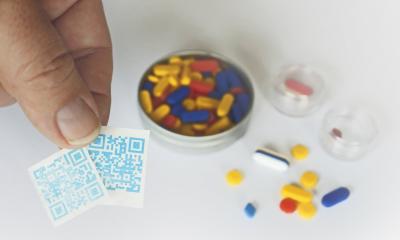Video • Drug manufacturing
3D printing pharmaceuticals with this chemical ‘MP3 player’
A new method of drug manufacture which uses 3D printers to create pharmaceuticals on demand could lead to a ‘Spotify for chemistry’, scientists claim.
In a new paper published in the journal Science, researchers from the University of Glasgow present for the first time a new approach to the manufacture of pharmaceuticals which can be made using a digital code. This code is used by a 3D printer to produce a portable factory, which can then be used to make the drug by adding the chemicals in a pre-defined fail-safe sequence. This approach could dramatically increase the number of useful drugs available regardless of patent-life, as they will no longer need to be made in a limited number of dedicated manufacturing facilities.

The researchers claim the ability to ‘print’ drug factories on demand could reduce cost, increase the choice available to clinicians, reduce the risk of counterfeiting, and help personalise drug delivery to the needs of individual patients. In the paper, the team of researchers from the University’s School of Chemistry demonstrate the potential of the system by producing the pharmaceutical Baclofen, a muscle relaxer used to treat muscle symptoms caused by multiple sclerosis, including spasm, pain, and stiffness. The team’s chemical factories are designed using a chemical-to-digital convertor to digitise the process so that it can easily be reproduced in a 3D printer, a process which the researchers liken to converting a compact disc to an MP3 file which can then be listened to on any computer or portable music player. With the addition of a simple instruction manual, the drug can be produced when and where it is needed.
'Spotify for chemistry'
The approach was designed and developed by Professor Lee Cronin, the University of Glasgow’s Regius Chair of Chemistry, and his team to help pave the way for the local manufacture of drugs outside of specialist facilities. Professor Cronin said: “This approach is a key step in the digitization of chemistry, and will allow the on demand production of chemicals and drugs that are in short supply, hard to make at big facilities, and allow customisation to tailor them to the application. We will also use this approach to make a ‘Spotify for chemistry’, allowing scientists to develop better code to make important chemicals.”
Source: University of Glasgow
24.01.2018











